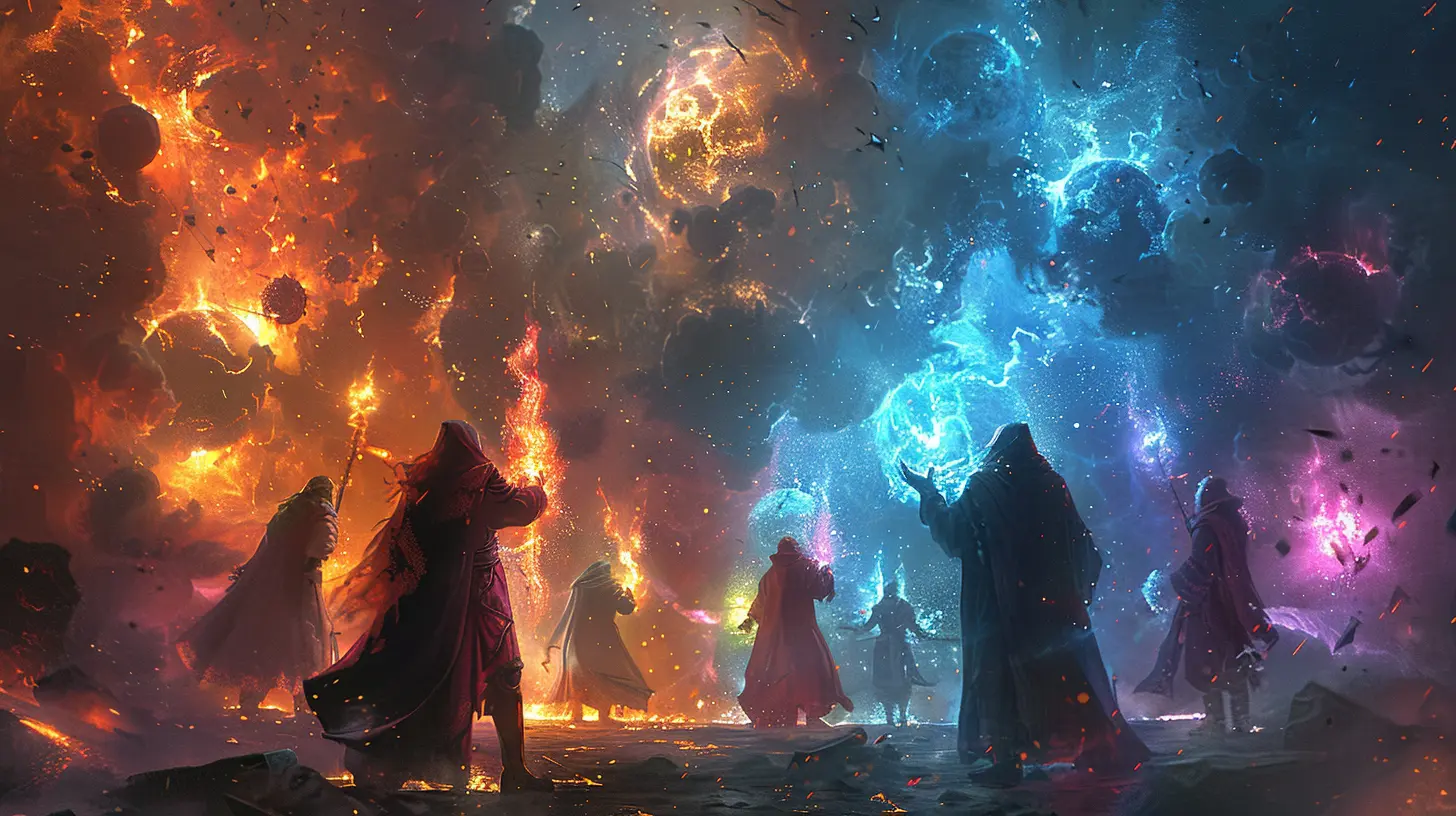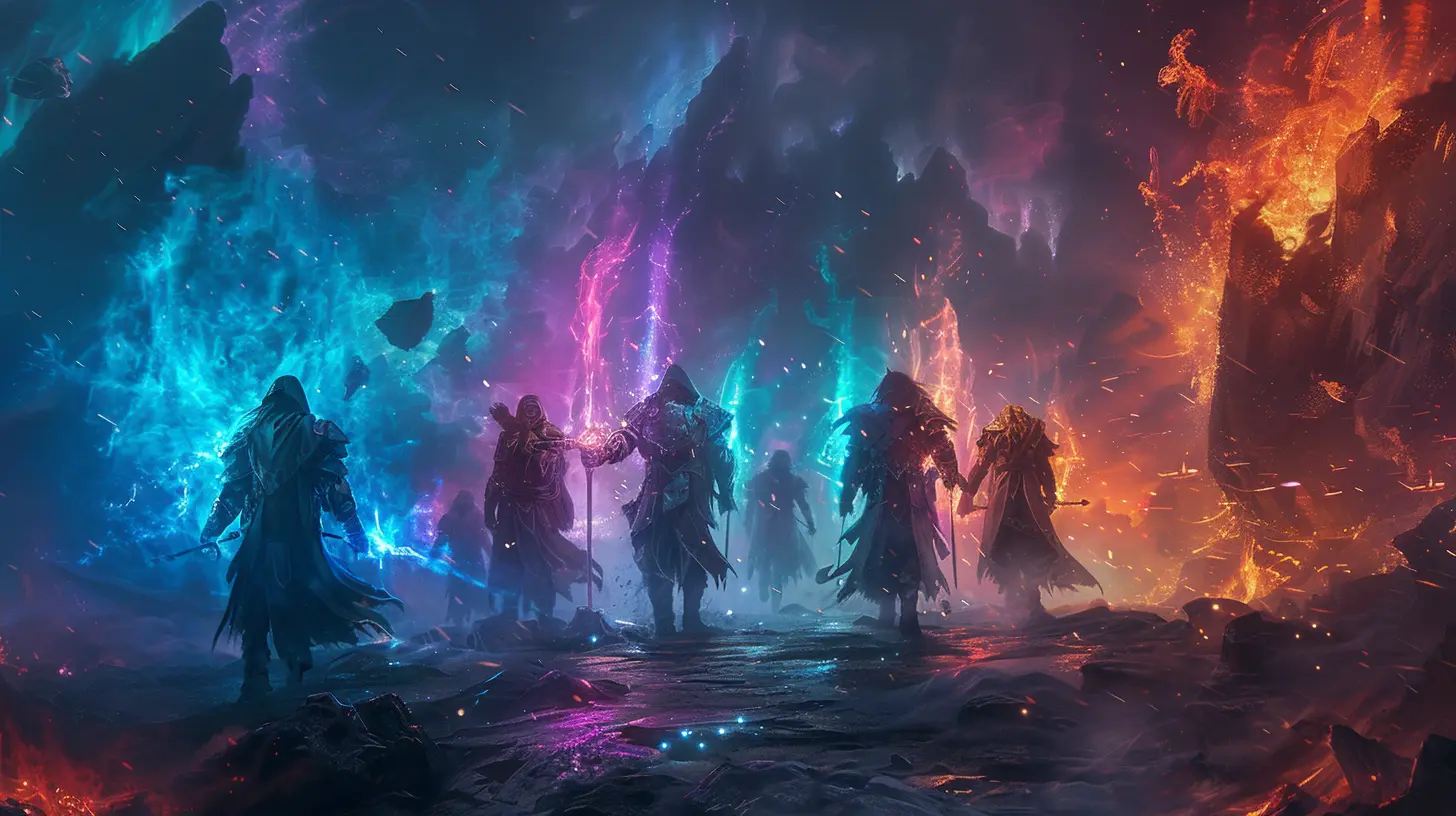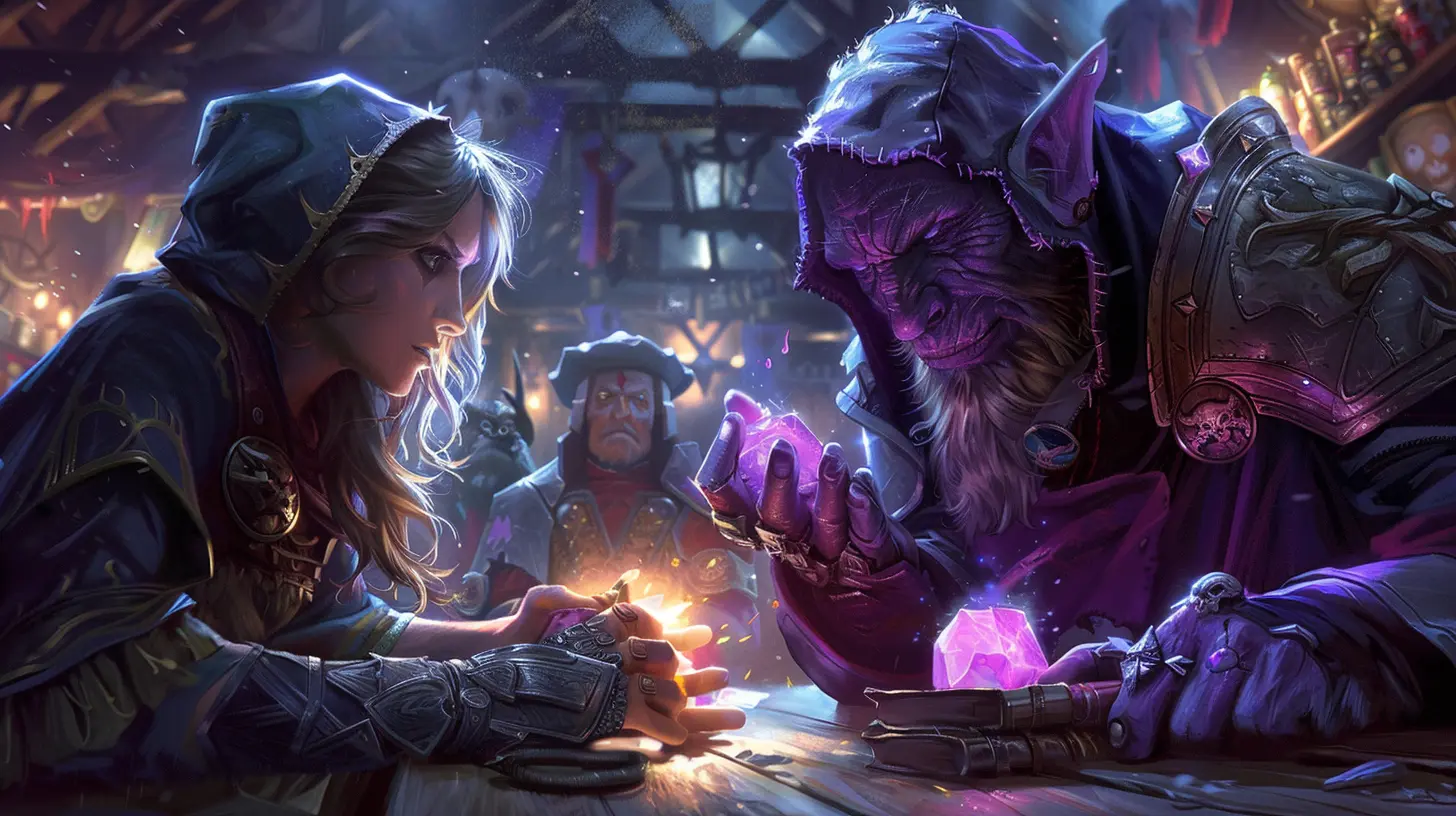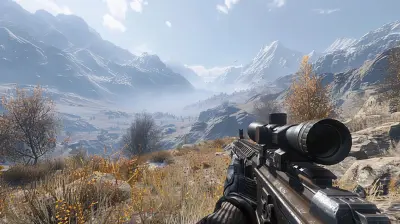The Psychology of Outplaying Opponents in PvP Games
27 October 2025
When it comes to player-versus-player (PvP) games, there's more at play than just fast reflexes and pixel-perfect aim. Sure, mastering the mechanics helps, but if you truly want to dominate PvP arenas, battlefields, or ranked ladders, there’s a secret ingredient: psychology.
Yep, it’s all about getting inside your opponent’s head, predicting their moves, and making them dance to your rhythm. PvP isn’t just a test of technical skill — it’s mind games on a digital battlefield.
In this article, we’ll dive deep into the psychology of outplaying opponents in PvP games. We’ll cover mental tactics, emotion control, behavior patterns, and even the sneaky tricks pros use to psyche out their enemies. Ready to level up your mental game? Let’s get into it.
What Makes PvP Games So Psychologically Intense?
PvP games are unlike any other genre. You're not fighting a script. You're facing real people — unpredictable, emotional, sometimes overconfident, sometimes cautious. That’s what makes it thrilling.Unlike PvE (player vs environment) games where you learn patterns and AI behavior, PvP throws you into a world of human decision-making. And the beauty is, once you understand how people think and react under pressure, you can start to manipulate that — turning the mental game in your favor.
Reading Your Opponent: Know Your Enemy
Let’s be real — most PvP matches are more chess than chaos. And just like in chess, if you can figure out what your opponent wants to do before they do it, you’re already two steps ahead.Behavioral Patterns
Players have habits. Some go aggressive right off the bat. Others play it safe, waiting for a mistake. Watch your opponent’s rhythm:- Do they rush in after every kill?
- Do they always flank from the same side?
- Do they panic under pressure?
Noticing these patterns lets you predict and set traps — like baiting them into a false sense of security or countering their favorite strategies.
The Art of Baiting
Ever heard of giving your enemy just enough rope to hang themselves? That’s baiting. It’s one of the most effective psychological tools in PvP.Let’s say you fake a retreat, and your opponent chases. Guess what? You just lured them into a trap. Or maybe you intentionally miss a shot to make them rush in, thinking you’re vulnerable. Little do they know, you set it up.
Baiting works because it uses your opponent’s instincts against them. And once you start doing this, players will second-guess everything — giving you a massive mental edge.
Understanding Tilt and Emotional Control
Now let’s talk tilt — the dark side of competitive play.Tilt is what happens when frustration, anger, or anxiety clouds judgment. We've all been there. Maybe you got spawn-killed three times in a row and now you’re just running in like a madman. Bad idea.
Recognizing Tilt in Yourself
The first step to gaining a psychological edge isn’t breaking your opponent — it's making sure you don’t break.Ask yourself:
- Are you playing emotionally or strategically?
- Are you trying to win or just trying to get revenge?
Take a breath. Reset. A calm mind wins battles.
Weaponizing Your Opponent’s Emotions
Now here’s where it gets spicy. If you can recognize when your enemy is tilted, you can crank up the pressure and exploit it.Maybe they start rushing blindly, making dumb decisions. Great — punish them for it. Maybe they start typing angry messages in chat. You’ve already won half the battle.
The key is subtle pressure and consistency. Make them feel like they can’t win no matter what they do. That’s how you break their spirit without saying a word.
Mind Games: Playing the Player, Not the Game
Ever heard the phrase “don’t play the game, play the player”? That’s where PvP psychology really shines.Predicting and Conditioning
High-level players condition their enemies — they create expectations and then flip the script.Example: for three rounds, you always push from the left. Your opponent adapts and starts guarding that side heavily. So what do you do in round four? You go right.
Boom — they’re out of position, and you outplayed them without even fighting yet.
This tactic works across all genres — shooters, MOBAs, fighting games, even card games. Set up a pattern, break it when it matters most. Pure mind games.
Confidence vs. Arrogance
Confidence helps you assert dominance. Arrogance gets you punished.Some players will underestimate you if they win a few early rounds. Let them. That overconfidence will make them careless. Your job? Capitalize on every mistake.
Remember, a player who thinks they've already won is the easiest kind to beat — because they start ignoring fundamentals.
The Power of Deception
Deception is a powerful psychological tool in PvP. It goes beyond baiting — it’s about fooling your opponent on multiple levels.Disguised Intentions
Let’s say you’re playing a stealth-based hero or champion. You show up on the map just long enough to make them think you've gone one way, but you’re actually hiding, waiting for them to walk right into your trap.Or in a fighting game, you spam a couple of low attacks to force a crouch block, then hit them with an overhead. It’s all about misdirection — the digital equivalent of a magic trick.
False Security
Making your opponent feel safe when they’re not is deliciously effective. Ever let an enemy win a small skirmish just to feed their ego? Then crash their momentum with a perfect ambush? That’s psychological warfare at its finest.Map Control and Presence: Psychological Territory
In PvP, your presence on the map can mess with your opponent’s mind.Dominating the Battlefield
Holding key areas of the map — power weapon spawns, high ground, chokepoints — sends a message: “This is my house.”Even if you’re not engaging directly, just being seen in these key spots makes enemies nervous. They’ll second-guess every step they take. That hesitation gives you the reaction time advantage.
Forcing the Focus
If you keep showing up at one point on the map, your enemies will start focusing their attention there. Meanwhile, you (or your team) hit from the other side. Classic misdirection. Works like a charm.Communication: Team Psychology in Squad-Based PvP
If you’re playing squad-based PvP like Valorant, Apex Legends, or League of Legends, psychology gets social.Positive Vibes = Better Plays
A tilted or toxic team spirals fast. But a team that stays hyped, communicates clearly, and supports each other? That team comes back from crazy deficits.Keep the energy up. Encourage clutch plays. Stay solution-focused rather than blame-focused. You’d be surprised how much morale impacts performance.
Faking Confidence
Sometimes your team’s low on HP, low on confidence, and everything feels lost. But guess what? If you push in confidently like you’re fully stacked and ready, you might make the enemy panic or retreat.Confidence is contagious — but also confusing from the enemy’s perspective. Use it to reverse the flow of the game.
Knowing When To Switch It Up
One of the biggest psychological edges comes from adaptability. If you’re predictable — even if you’re good — your opponent will catch on.Changing Tactics Mid-Game
Switch builds, change weapons, rotate differently, alter your timing — do something unexpected. It keeps opponents guessing and throws off their internal rhythm.Because once you break their mental flow, your advantage grows tenfold.
Giving Respect Where It’s Due
Part of outplaying someone psychologically is knowing when you're outmatched mechanically — and adjusting. If someone’s out-aiming you, shift your focus to positioning, strategy, and unpredictability.Play smarter, not harder.
Self-Belief: The Secret Weapon
Here’s the unspoken truth: confidence is a weapon. When you believe you'll win, you play better. You make bolder moves. You’re less afraid to take initiative.The mind is a powerful battlefield. Doubt slows you down. Fear makes you passive. But belief? Belief turns you into a force of nature.
So before you even queue up that next PvP match, ask yourself: am I mentally ready to win?
Final Thoughts
Outplaying opponents in PvP games isn’t about being a better gamer — it’s about being the smarter one. It’s about understanding behaviors, staying emotionally steady, and pulling psychological strings like a puppeteer.The best players don't just play the game — they play the person behind the screen.
So whether you’re climbing ranked in your favorite competitive title or dropping into the chaos of battle royales, remember:
Stay calm. Observe everything. Make them dance to your beat.
Now go out there and start winning not just with your aim, but with your mind.
all images in this post were generated using AI tools
Category:
Gaming TipsAuthor:

Audrey McGhee
Discussion
rate this article
1 comments
Caitlin Ruiz
In PvP games, victory transcends skill; it delves into the psyche of anticipation and manipulation. Understanding opponents' emotions transforms gameplay into a psychological chess match, where every decision echoes a deeper narrative of strategy and self-awareness.
November 2, 2025 at 3:52 PM

Audrey McGhee
Absolutely! The psychological aspect of PvP is critical; mastering emotions and anticipating opponents' moves can be as vital as technical skills. It's a thrilling blend of strategy and mental agility.


